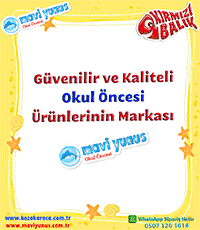Bir dahaki sefer ellerinizi yıkarken suyun sıcaklığı tam istediğiniz gibi değilse eskiden İngiltere’de bu işlerin nasıl yapıldığını düşünün. 1500’lerde İngiltere’de işler şöyle yapılıyordu
İnsanların çoğu Haziran’da evleniyordu Çünkü senelik banyolarını Mayıs ayında yapıyorlar, Haziran’da hala çok kötü kokmuyorlardı. Ama yine de kokmaya başladıkları için gelinler vücutlarından çıkan kokuyu bastırmak amacıyla ellerinde bir buket çiçek taşıyordu.
Banyolar içi sıcak suyla doldurulmuş büyük bir fıçıdan meydana geliyordu.
Evin erkeği temiz suyla yıkanma imtiyazına sahipti. Ondan sonra oğulları ve diğer erkekler, daha sonra kadınlar, sonra çocuklar ve en son olarak da bebekler aynı suda yıkanıyordu. Bu esnada su o kadar kirli hale geliyordu ki içinde gerçekten bir şeyleri kaybetmek mümkündü. Ingilizce'deki “banyo suyuyla birlikte bebeği de atmayın” (Don’t throw the baby out with the bath water) deyimi buradan gelmektedir.
Evlerin çatıları üst üste yığılmış kamıştan yapılıyor, kamışların altında tahta bulunmuyordu. Burası hayvanların ısınabilecekleri tek yer olduğu için bütün kediler, köpekler ve diğer küçük hayvanlar (fareler, böcekler) çatıda yaşıyordu. Yağmur yağdığı zaman çatı kayganlaşıyor ve bazen hayvanlar kayarak çatıdan aşağı düşüyordu. Ingilizce’deki “kedi-köpek yağıyor” (It’s raining cats and dogs) deyimi buradan gelmektedir.
Yukarıdan evin içine düşen şeyleri engelleyecek hiçbir şey yoktu. Böceklerin ve buna benzer nesnelerin yatakların içine düşmesi büyük bir sıkıntı oluşturuyordu. Etrafında yüksek direkler ve üstünde örtü bulunan İngiliz usulü yataklar buradan gelmektedir.
Zemin topraktı. Sadece zenginlerin zemini topraktan başka bir şeyden yapılmıştı. Toprak kadar fakir (dirt poor) tabiri buradan çıkmıştır.
Zenginlerin ahşaptan yapılmış zeminleri vardı. Bunlar kışın ıslandığı zaman kayganlaşıyordu. Bunu önlemek için yere saman (thresh) seriyorlardı.
Kış boyunca saman sermeye devam ediliyordu. Bir zaman geliyordu ki kapı açılınca saman dışarıya taşıyordu. Buna mani olmak üzere kapının altına bir tahta parçası konuyordu ki bunun adı “thresh hold” (saman tutan; Türkçesi “eşik”) idi.
Yemek pişirme işlemi her zaman ateşin üzerine asılı durumdaki büyük bir kazanın içinde yapılıyordu. Her gün ateş yakılıyor ve kazana bir şeyler ilave ediliyordu. Çoğu zaman sebze yeniyor, et pek bulunmuyordu.
Akşam yahni yenirse artıklar kazanda bırakılıyor, gece boyunca soğuyan yemek ertesi gün tekrar ısıtılarak yenmeye devam ediliyordu. Bazen bu yahni çok uzun süre kazanda kalıyordu. “Bezelye lapası sıcak, bezelye lapası soğuk, kazandaki bezelye lapası dokuz günlük” (peas porridge hot, peas porridge cold, peas porridge in the pot nine days old) tekerlemesinin menşei budur.
Bazen domuz eti buluyorlar o zaman çok seviniyorlardı. Eve ziyaretçi gelirse domuz etlerini asarak onlara gösteriş yapıyorlardı.
Birisinin eve domuz eti getirmesi zenginlik işaretiydi. Bu etten küçük bir parça keserek misafirleriyle oturup paylaşıyorlardı. Buna “yağ çiğnemek” (chew the fat) adı veriliyordu.
Parası olanlar kalay-kurşun alaşımından yapılmış tabaklar alabiliyordu.
Asidi yüksek olan yiyecekler kurşunu çözerek yemeğe karışmasına sebep oluyor, böylece gıda zehirlenmelerine ve ölüme yol açıyordu. Domatesler buna sık sık sebep olduğu için bunda sonraki yaklaşık 400 yıl boyunca domateslerin zehirli olduğu düşünülmüştü.
Çoğu insanın kalay-kurşun alaşımından yapılmış tabakları yoktu. Onun yerine tahta tabaklar kullanıyorlardı. Çoğu zaman bu tabaklar bayat ekmekten yapılıyordu. Ekmekler o kadar bayat ve sertti ki uzun zaman kullanılabiliyordu. Bunlar hiçbir zaman yıkanmadığı için içinde kurtlar ve küfler oluşuyordu. Kurtlu ve küflü tabaklardan yemek yiyen insanların ağızlarında “tabak ağzı” (trench mouth) denen hastalık ortaya çıkıyordu.
Ekmek itibara göre bölüşülüyordu. İşçiler yanık olan alt kabuğu, aile orta kısmı, misafirler de üst kabuğu alırdı.
Bira ve viski içmek için kurşun kadehler kullanılıyordu. Bu bileşim insanları bazen birkaç gün şuursuz vaziyette tutabiliyordu. Yoldan geçen insanlar bunların öldüğünü sanıp defnetmek için hazırlık yapıyordu.
Bunlar birkaç gün süreyle mutfak masasının üstüne yatırılıyor¸ aile etrafına toplanıp yiyip-içerek uyanıp uyanmayacağına bakıyordu. Buna “uyanma” nöbeti deniyordu.
İngiltere eski ve küçük bir yerdi, insanlar ölülerini gömecek yer bulamamaya başlamıştı. Bunun için mezarları kazıp tabutları çıkarıyor, kemikleri bir “kemik evi”ne götürüyor ve mezarı yeniden kullanıyorlardı.
Tabutlar açıldığında her 25 tabutun birinde iç tarafta kazıntı izleri olduğu görüldü. Böylece insanların diri diri gömüldüğü ortaya çıktı.
Buna çözüm olarak cesetlerin bileklerine bir ip bağlayıp bu ipi tabuttan dışarıya taşıyarak bir çana bağladılar. Bir kişi bütün gece boyu mezarlıkta oturup zili dinlerdi. Buna mezarlık nöbeti “graveyard shift”) denirdi.
Bazıları zil sayesinde kurtulur (“saved by the bell”) bazıları da “ölü zilci” (dead ringer) olurdu.
Gerçekler bunlar. Kim demiş tarih sıkıcıdır diye..
(Anonim)
Bu da orijinal metin:
Weird History
Next time you’re washing your hands and the water temperature isn’t just how you like it, think about how things used to be. Here are some facts about the 1500s.
Most people got married in June because they took their yearly bath in May and still smelled pretty good by June. However, they were starting to smell, so brides carried a bouquet of flowers to hide the body odor.
Baths consisted of a big tub filled with hot water. The man of the house had the privilege of the nice clean water, then all the other sons and men, then the women and finally the children—last of all the babies.
By then the water was so dirty you could actually lose someone in it. Hence the saying, “Don’t throw the baby out with the bath water.”
Houses had thatched roofs—thick straw—piled high, with no wood underneath. It was the only place for animals to get warm, so all the dogs, cats and other small animals (mice, bugs) lived in the roof. When it rained it became slippery and sometimes the animals would slip and fall off the roof—hence the saying “It’s raining cats and dogs.”
There was nothing to stop things from falling into the house. This posed a real problem in the bedroom where bugs and other droppings could
really mess up your nice clean bed. Hence, a bed with big posts and a sheet hung over the top afforded some protection. That’s how canopy beds came into existence.
The floor was dirt. Only the wealthy had something other than dirt, hence the saying “dirt poor.”
The wealthy had slate floors that would get slippery in the winter when wet, so they spread thresh (straw) on the floor to help keep their footing.
As the winter wore on, they kept adding more thresh until when you opened the door it would all start slipping outside. A piece of wood was placed in the entranceway, hence, a “thresh hold.”
In those old days, they cooked in the kitchen with a big kettle that always hung over the fire. Every day they lit the fire and added things to the pot. They ate mostly vegetables and did not get much meat. They would eat the stew for dinner, leaving leftovers in the pot to get cold overnight and then start over the next day. Sometimes the stew had food in it that had been there for quite awhile. Hence the rhyme, “peas porridge hot, peas porridge cold, peas porridge in the pot nine days old.”
Sometimes they could obtain pork, which made them feel quite special.
When visitors came over, they would hang up their bacon to show off. It was a sign of wealth that a man “could bring home the bacon.” They would cut off a little to share with guests and would all sit around and “chew the fat.”
Those with money had plates made of pewter. Food with a high acid content caused some of the lead to leach onto the food, causing lead poisoning and death. This happened most often with tomatoes, so for the next 400 years or so, tomatoes were considered poisonous.
Most people did not have pewter plates, but had trenchers, a piece of wood with the middle scooped out like a bowl. Often trenchers were made from stale bread which was so old and hard that they could be used for quite some time. Trenchers were never washed and a lot of times worms and mold got into the wood and old bread. After eating off wormy, moldy trenchers, one would get “trench mouth.”
Bread was divided according to status. Workers got the burnt bottom of the loaf, the family got the middle, and guests got the top, or “upper crust.”
Lead cups were used to drink ale or whiskey. The combination would sometimes knock them out for a couple of days. Someone walking along the road would take them for dead and prepare them for burial. They were laid out on the kitchen table for a couple of days and the family would gather around and eat and drink and wait and see if they would wake up.
Hence the custom of holding a “wake.”
England is old and small and the local folks started running out of places to bury people. So they would dig up coffins and would take the bones to a “bone-house” and reuse the grave. When reopening these coffins, 1 out of 25 coffins were found to have scratch marks on the inside and they realized they had been burying people alive. So they thought they would tie a string on the wrist of the corpse, lead it through the coffin and up through the ground and tie it to a bell. Someone would have to sit out in the graveyard all night (the “graveyard shift”) to listen for the bell; thus, someone could be “saved by the bell” or was considered a “dead ringer.”
And that’s the truth. . .. (who ever said that History was boring)?
alıntı
-
21.July.2009 #1
Ilginç tarih, Ingilizce deyimler(Çok ilginç)
-
10.April.2011 #2
çok ilginçmiş ya bunları öğrendiğim iyi oldu yabancıların yaşam tarzı nbeni hep etkilemiştir zaten paylaşım için teşekkürler ;)
-
11.May.2011 #3
paylaşım için tşklr.eskiden affedersiniz tuvalette yokmuş.bundan dolayı gaytalarını dışarı atıyorlarmış.bunun için parfümü bulmuşlar. eee kötü koku olunca bişey bulmaları şarttı
Benzer Konular
-
ilginç bilgiler
Konu Sahibi umut dalları Forum İLGİNÇCevap: 5Son Mesaj : 11.August.2010, 02:19 -
ilginç bir baykuş
Konu Sahibi Gülbin HİCRİ Forum Diğer-Karışık Artık Materyal Etk.Cevap: 3Son Mesaj : 28.June.2010, 20:25 -
çok ilginç bir maske
Konu Sahibi Gülbin HİCRİ Forum KOSTÜMLER VE MASKELERCevap: 4Son Mesaj : 26.May.2010, 02:50 -
ilginç takılar
Konu Sahibi meleköğretmen. Forum İLGİNÇCevap: 2Son Mesaj : 09.March.2010, 21:54 -
ilginç bilgiler
Konu Sahibi Meltem YANIKOĞLU Forum İLGİNÇCevap: 4Son Mesaj : 05.September.2009, 02:01


 LinkBack URL
LinkBack URL About LinkBacks
About LinkBacks




 Alıntı ile Cevapla
Alıntı ile Cevapla